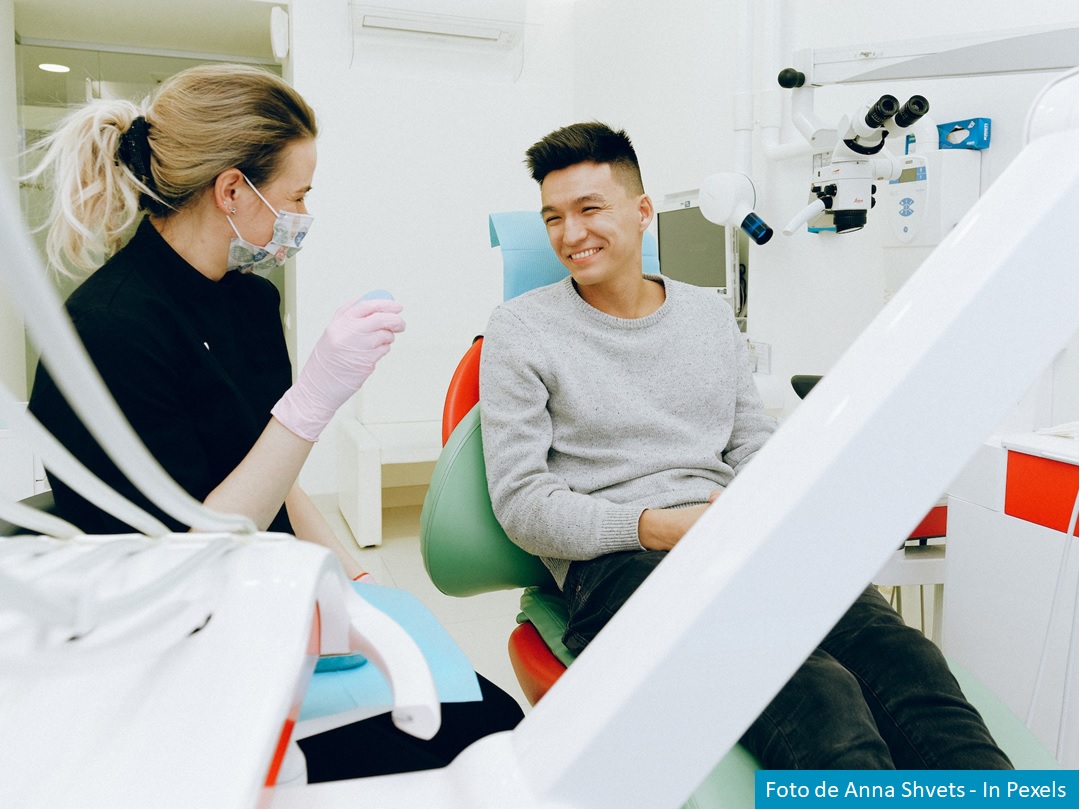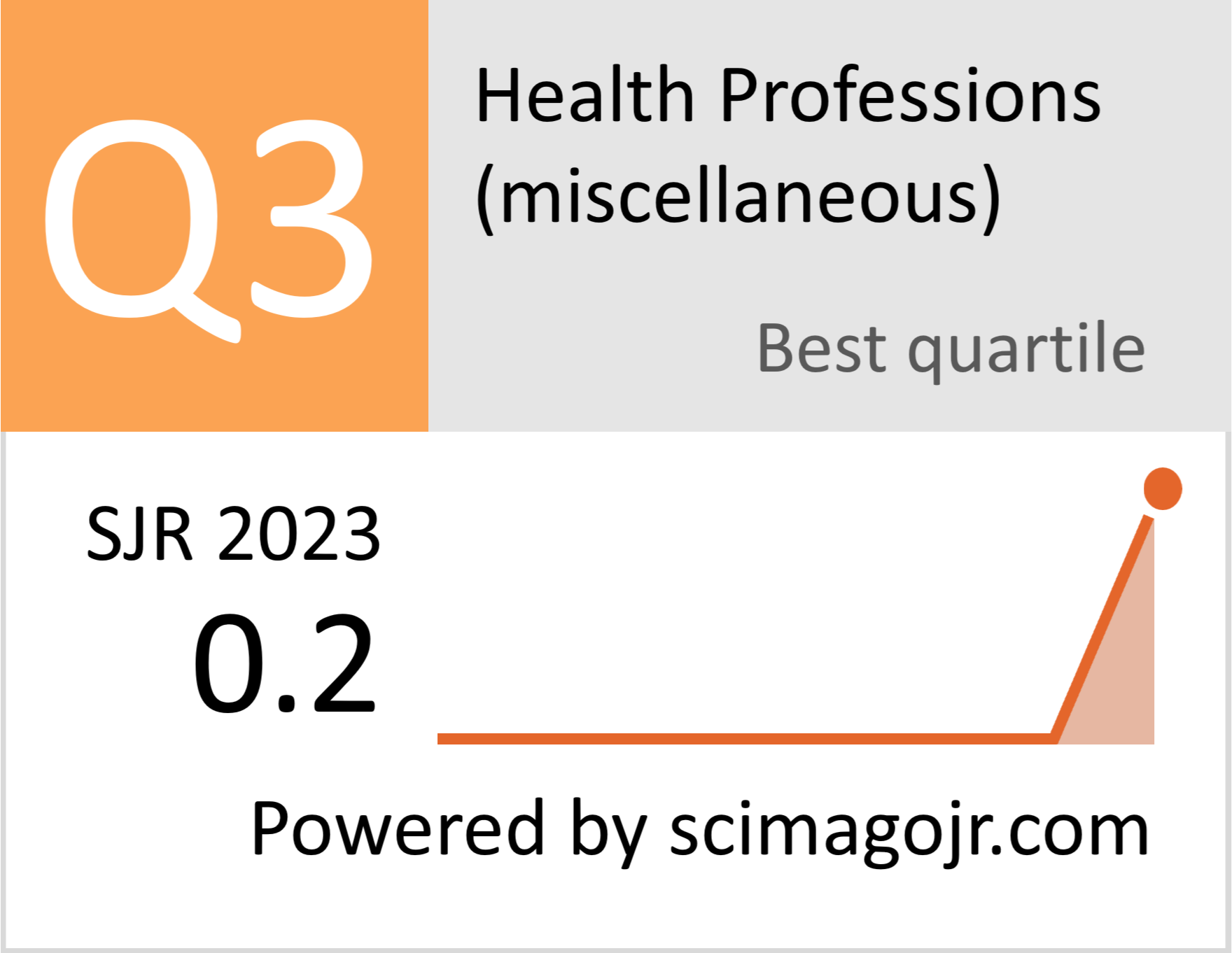Family Functioning as a possible factor that modulates empathy levels in dental students
Funcionamiento familiar como posible factor que modula los niveles de empatía en estudiantes de odontología

This work is licensed under a Creative Commons Attribution-NonCommercial-NoDerivatives 4.0 International License.
Show authors biography
Aim: The objective of this paper is to explore whether there are differences in the levels of empathy and its dimensions between family typologies in dental students.
Methodology. A quantitative and not experimental study, with a cross-sectional descriptive design, a population of dental students from the Evangelical University of El Salvador, and a convenience sample were applied. The levels of empathy and family functioning were evaluated using the Jefferson Scale of Empathy for Health Professions students and the Brief Scale of Family Functioning. The construct validity of both instruments was estimated using Confirmatory Factor Analysis. The reliability was estimated using McDonald's omega and Cronbach's alpha. Comparisons of empathy and its dimensions between family typologies were made using a two-factor analysis of variance.
Results. No statistical differences were observed in empathy and its dimensions based on family typologies. It was found that women are more empathic than men. This result is not in accordance with other studies carried out in Latin America on dental and medical students evaluating empathy and family functioning with the same instruments.
Conclusions. The distribution of empathy levels and their dimensions are similar among the family typologies studied. Therefore, it was not found that family functioning can influence empathy in the population studied. It is necessary to continue these studies to obtain more empirical evidence regarding the influence of family functioning on empathy.
Article visits 1350 | PDF visits 82
- Moore R. Maximizing Student Clinical Communication Skills in Dental Education-A Narrative Review. Dent J (Basel). 2022;10(4):57. doi: https://doi.org/10.3390/dj10040057
- Fortich Mesa N, Díaz-Narváez VP. Actitud empática en estudiantes de odontología de la Corporación Universitaria Rafael Núñez en la ciudad de Cartagena. Rev. Cienc. de la Salud. 2018;16(1):129-143. doi: https://doi.org/10.12804/revistas.urosario.edu.co/revsalud/a.6495
- Torres-Martínez PA, Barrios-Penna CA, Fonseca-Molina JF, Díaz- Narváez VP, González-Cruz SA. Levels of empathy in dental students at Universidad San Sebastián in Concepción, Chile. Rev. Fac. Med. 2017;65(2):219-25. doi: https://dx.doi.org/10.15446/revfacmed.v65n2.61444
- Díaz-Narváez VP, Calzadilla-Núñez A. Ecualización de la empatía en estudiantes de dos sedes diferentes en una facultad de odontología de una universidad chilena. Rev Med Rosario. 2019;85(1):020-026. Disponible en: https://revistamedicaderosario.org/index.php/rm/article/view/17
- López Arboleda GM, Betancur Vélez A, Bustamante Rodríguez A, Uribe Figueroa AM, Ortiz González AL, Agudelo Zorrilla AF, et al. Amor, empatía y conductas prosociales: una reflexión interdisciplinaria. Gloria María López Arboleda, Diego Alejandro Pérez Múnera, Editores. Medellín: Fondo Editorial Universidad Católica Luis Amigó; 2022. p. 225. Disponible en: https://tinyurl.com/28rj5epg
- Allen M, Frank D, Glen JC, Fardo F, Callaghan MF, Rees G. Insula and somatosensory cortical myelination and iron markers underlie individual differences in empathy. Sci Rep. 2017;3(7):43316. doi: https://doi.org/10.1038/srep43316
- Decety J. The contribution of forensic neuroscience to psychopathy. Encephale. 2020;46(4):301-307. doi: https://doi.org/10.1016/j.encep.2020.02.007
- Shamay-Tsoory SG. Inter-brain plasticity underlies empathic learning in social interactions. Front Psychol. 2022;10(13):951248. doi: https://doi.org/10.3389/fpsyg.2022.951248
- Glas G. Conceptual issues in neuroscientific research on empathy. Int J Law Psychiatry. 2019;65:101358. doi: https://doi.org/10.1016/j.ijlp.2018.05.006
- Díaz-Narváez VP, Calzadilla-Núñez A, Alonso LM, Torres-Martínez PA, Cervantes Mendoza M, Fajardo-Ramos E. Empathy and Ontogeny: A Conceptual Approach. West Indian Mes J. 2017;66(3):1-4. doi: https://doi.org/10.7727/wimj.2016.344
- Alderman EM, Breuner CC, Grubb LK, Powers ME, Upadhya K, Wallace SB, et al. Unique Needs of the Adolescent. Pediatrics [Internet]. 2019 Dec 1;144(6). doi: http://dx.doi.org/10.1542/peds.2019-3150
- Jensen SKG, Tofail F, Haque R, Petri WA Jr, Nelson CA 3rd. Child development in the context of biological and psychosocial hazards among poor families in Bangladesh. PLoS One. 2019;6;14(5):e0215304. doi: https://doi.org/10.1371/journal.pone.0215304
- Leyton A. A latent class analysis to identify how patterns of Intimate Partner Violence Influence Early Childhood Development outcomes in Honduras. Child Abuse Negl. 2020;107:104609. doi: https://doi.org/10.1016/j.chiabu.2020.104609
- Almutairi S, Scambler S, Bernabé E. Family functioning and dental caries among preschool children. J Public Health Dent. 2022;82(4):406-414. doi: https://doi.org/10.1111/jphd.12475
- Olson DH, Russell CS, Sprenkle DH. Circumplex model of marital and family systems: VI. Theoretical update. Family Process. 1983;22(1):69-83. doi: https://doi.org/10.1111/j.1545-5300.1983.00069.x
- Couture S, Fernet M, Hébert M. A cluster analysis of dynamics in adolescent romantic relationships. J Adolesc. 2021;89:203-212. doi: https://doi.org/10.1016/j.adolescence.2021.04.012
- Zegers B, Larraín EM, Polaino-Lorente A, Trapp A, Diez I. Validez y confiabilidad de la versión española de la escala de Cohesión y Adaptabilidad Familiar (CAF) de Olson, Russell & Sprenkle para el diagnóstico del funcionamiento familiar en la población chilena. Rev Chilena de Neuro-Psiquiatría. 2003;41(1):39–54. doi: https://doi.org/10.4067/S0717-92272003000100006
- Díaz-Narváez VP. En Metodología de la Investigación Científica y Bioestadística para Profesionales y Estudiantes de Ciencias de la Salud. Primera Edición. El Salvador: Editorial UEES;. 2019.
- Martínez-Pampliega A, Castillo II, Vázquez MS. Validez estructural del FACES-20-Esp : Versión española de 20 ítems de la Escala de Evaluación de la Cohesión y Adaptabilidad Familiar. Revista Iberoamericana de Diagnóstico y Evaluación. 2011;29(1):147–165. Disponible en: https://www.aidep.org/sites/default/files/2018-12/r29art8_1.pdf
- Zicavo N, Palma C, Garrido G. Adaptation and validation of faces 20-ESP: family functioning awareness in Chillán, Chile. Rev. Latinoam. Cienc. Soc. Niñez Juv. 2012;10(1):219–234. Disponible en: https://tinyurl.com/2bzkztb7
- Yuan KH, Bentler PM. Three likelihoodbased methods for mean and Covariance structure analysis with nonnormal missing data. Sociol. Methodol. 2000;30(1):165–200. doi: https://doi.org/10.1111/0081-1750.00078
- Franco-Martínez A, Alvarado JM, Sorrel MA. Range Restriction Affects Factor Analysis: Normality, Estimation, Fit, Loadings, and Reliability. Educ Psychol Meas. 2022;83(2). doi: https://doi.org/10.1177/00131644221081867
- Grace JB, Irvine KM. Scientist's guide to developing explanatory statistical models using causal analysis principles. Ecology. 2020 Apr;101(4):e02962. doi: https://doi.org/10.1002/ecy.2962
- Schumacker RE, Lomax RG. A Beginner’s Guide to Structural Equation Modeling. Fourth Edition (4th ed.). Routledge; 2015.
- Raykov T, Hancock GR. Examining change in maximal reliability for multiple-component measuring instruments. Br J Math Stat Psychol. 2005;58(1):65–82. doi: https://doi.org/10.1348/000711005X38753
- Chen FF. Sensitivity of goodness of fit indexes to lack of measurement invariance. Struct Equ Modeling. 2007;14(3):464–504. doi: https://doi.org/10.1080/10705510701301834
- Ye P, Ju J, Zheng K, Dang J, Bian Y. Psychometric Evaluation of the Parental Reflective Functioning Questionnaire in Chinese Parents. Front Psychol. 2022;28;13:745184. doi: https://doi.org/10.3389/fpsyg.2022.745184
- Mardia KV. Measures of multivariate skewness and kurtosis with applications. Biometrika. 1970;57:519-530. doi: https://doi.org/10.2307/2334770
- Kang H. Sample size determination and power analysis using the G*Power software. J Educ Eval Health Prof. 2021;18:17. doi: https://doi.org/10.3352/jeehp.2021.18.17
- Staffa SJ, Zurakowski D. Statistical power and sample size calculations: A primer for pediatric surgeons. J Pediatr Surg. 2020 Jul;55(7):1173-1179. doi: https://doi.org/10.1016/j.jpedsurg.2019.05.007
- Muthén LK, Muthén BO. Mplus User’s Guide. 8th ed. Los Angeles, CA: Muthén & Muthén; 2017.
- Finney SJ, DiStefano C. Nonnormal and categorical data in structural equation modeling. In: Hancock GR, Mueller RO, Editors. Structural equation modeling: A second course. 2nd ed. Charlotte, NC: Information Age Publishing Inc., 2013. p. 439–492.
- Díaz-Narváez VP, Tierra-Chávez DC, Padilla M, Utsman R, Calzadilla-Núñez A. Declinación en el género y la empatía en alumnos de la Facultad de Odontología de la Universidad Central (Ecuador): Estudio transversal. Rev. Méd. Rosario. 2018;84:55-66. Disponible en: https://pesquisa.bvsalud.org/portal/resource/pt/biblio-1050942
- Díaz-Narváez VP, Silva-Vetri MG, Calzadilla-Núñez A, López García AL, de la Portilla Lopez A, Reyes-Reyes A. Empathy in professors and students of a school of dentistry in the Caribbean. Pesqui Bras Odontopediatria Clín Integr. 2022;22:e200240. doi: https://doi.org/10.1590/pboci.2022.043
- Díaz-Narváez VP, Erazo Coronado AM, Bilbao JL, González F, Padilla M, Calzadilla-Núñez C, et al. Reconsidering the 'Decline' of Dental Student Empathy within the Course in Latin America Acta Med Port. 2017;30(11):775-782. doi: https://doi.org/10.20344/amp.8681
- Díaz-Narváez V, Miranda-Carreño F, Galaz-Guajardo S, Sepúlveda-Navarro W, Zúñiga-Mogollones M, Calzadilla-Núñez A, et al. Variabilidad empática en estudiantes de odontología. Consecuencias aún no entendidas en América Latina. Rev. Fac. Med. 2022;70(1):e91207. doi: https://doi.org/10.15446/revfacmed
- Díaz-Narváez VP, Bilbao JL, Estrada-Méndez N, Ulloque J, Calzadilla-Núñez A, Barrera-Gil D. Consideraciones sobre la declinación empática en estudiantes de medicina en Latinoamérica. Rev. Cienc. de la Salud. 2020;18(2):1-16. doi: https://doi.org/10.12804/revistas.urosario.edu.co/revsalud/a.9258
- Ameh PO, Uti OG, Daramola OO. Empathy among dental students in a Nigerian institution. Eur J Dent Educ. 2019;23(2):135-142. doi: https://doi.org/10.1111/eje.12412
- Schmidt V, Barreyro JP, Maglio AL. Escala de evaluación del funcionamiento familiar FACES III: ¿Modelo de dos o tres factores? Escritos de Psicología - Psychological Writings. 2010;3(2):30–36. doi: https://doi.org/10.24310/espsiescpsi.v3i2.13339
- Ponce ER, Gómez FJ, Terán M, Irigoyen Coriad E, Landgrave Ibáñez S. Validez de constructo del cuestionario FACES III en Español (México). Atencion Primaria. 2002;30(10):624–630. doi: https://doi.org/10.1016/S0212-6567(02)79124-5
- Bazo-Álvarez JC, Bazo-Alvarez OA, Aguila J, Peralta F, Mormontoy W, Bennett IM. Psychometric properties of the third version of family adaptability and cohesion evaluation scales (faces-III): A study of Peruvian adolescents. Rev Peru Med Exp Salud Publica. 2016:33(3):462–470. doi: https://doi.org/10.17843/rpmesp.2016.333.2299
- Dávila Pontón Y, Velez Calvo X, Celleri Gomezcoello A, Aguilera Muñoz J, Díaz-Narváez V, Calzadilla-Núñez A, et al. Empathy and Family Functioning in Medical Students of the University of Azuay, Cuenca, Ecuador. Salud Uninorte. 2020;36(3):571-586. doi: https://dx.doi.org/10.14482/sun.36.3.152.41
- Duran E, Padilla M, Utsman R, Reyes-Reyes A, Calzadilla-Núñez A, Díaz-Narváez V. Analysis of the relationship between empathy and family functioning in dentistry students of the Latin American University of Science and Technology (ULACIT), San José, Costa Rica. Proceedings of EDULEARN 17 Conference 3rd-5th July 2017, Barcelona, Spain. doi: https://dx.doi.org/10.21125/edulearn.2017.0816
- Olson DH, Sprenkle DH, Russell CS. Circumplex model of marital and family system: I. Cohesion and adaptability dimensions, family types, and clinical applications. Fami. Process 1979;18(1):3-28. doi: https://doi.org/10.1111/j.1545-5300.1979.00003.x
- Fan J, Ni X, Wang Y, Qian Y, Li X, Geng Y. Parent-Child Discrepancies in Perceived Parental Emotion Socialization: Associations with Children's Internalizing and Externalizing Problems in Chinese Families. J Youth Adolesc. 2022 Nov 24. 52: 547–560. doi: https://doi.org/10.1007/s10964-022-01711-4
- Wu W, Ma X, Liu Y, Qi Q, Guo Z, Li S, et al. Empathy alleviates the learning burnout of medical college students through enhancing resilience. BMC Med Educ. 2022;22(1):481. doi: https://doi.org/10.1186/s12909-022-03554-w
- Brown MEL, MacLellan A, Laughey W, Omer U, Himmi G, LeBon T, Finn, et al. Can stoic training develop medical student empathy and resilience? A mixed-methods study. BMC Med Educ. 2022 May 3;22(1):340. doi: https://doi.org/10.1186/s12909-022-03391-x
- Cao X, Chen L. Relationships between resilience, empathy, compassion fatigue, work engagement and turnover intention in haemodialysis nurses: A cross-sectional study. J Nurs Manag. 2021;29(5):1054-1063. doi: https://doi.org/10.1111/jonm.13243
- Morel-Barrios M, Díaz-Reissner C. Nivel de empatía en estudiantes de odontología de una universidad paraguaya durante la atención a pacientes en el marco de la pandemia por COVID-19, 2021. Rev. Nac. (Itauguá). 2022;14 (1):018-029. doi: https://doi.org/10.18004/rdn2022.jun.01.018.029
- Rionda IS, González JVG, Granda FJ, Richaud M, Mestre MV, Lemos V, et al. La influencia de la cultura en los estilos parentales en contextos de vulnerabilidad social. Av. en Psicol. Latinoam. 2013;31(2):419-431. Recuperado de: https://www.redalyc.org/articulo.oa?id=79928611009
- Calzadilla-Núñez A, Díaz-Narváez VP, Dávila-Pontón Y, Aguilera-Muñoz J. Fortich-Meza N, Aparicio-Marenco, et al. Erosión empática durante la formación médica según el género. Estudio transversal. Arch Argent Pediatr 2017;115(6):556-561. doi: http://dx.doi.org/10.5546/aap.2017.556



